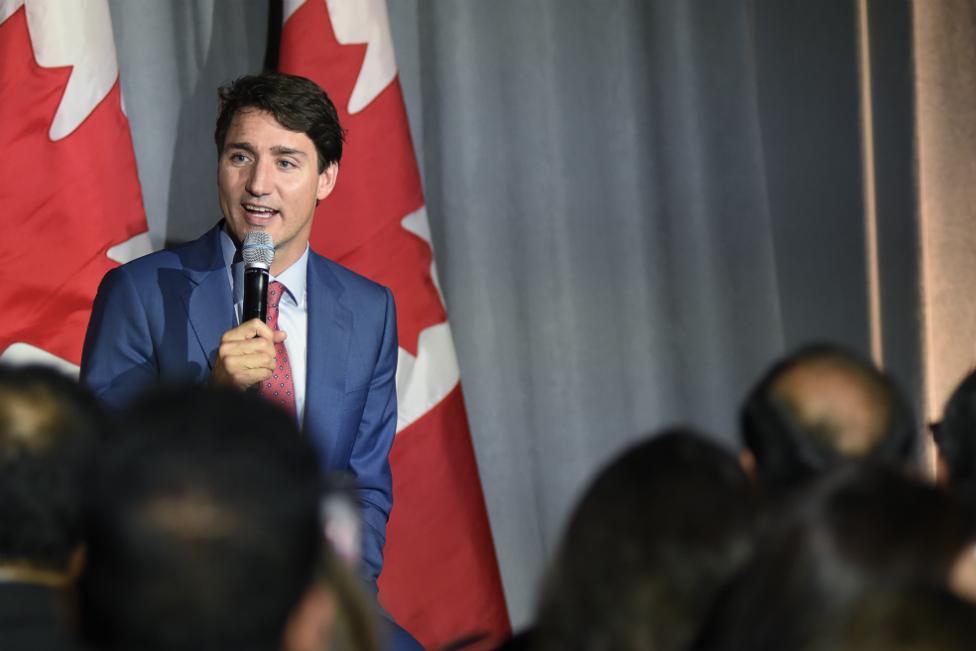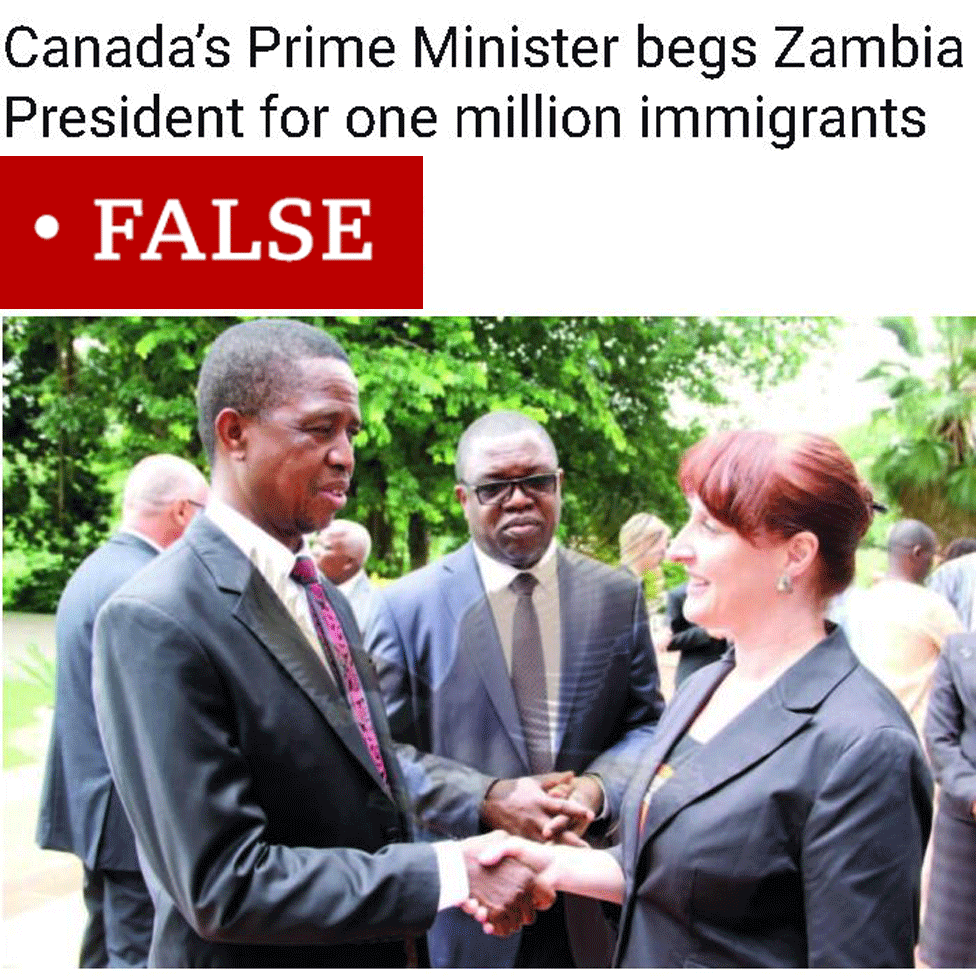Is Canada asking countries for a million immigrants?
- Published

A story saying Canada's Prime Minister, Justin Trudeau, has invited a million immigrants from individual countries to come to his country is spreading.
Nigeria, Kenya, Zimbabwe, Zambia, Ghana and the Philippines have all been targeted.
The articles have been circulating online and on social media.
But the stories aren't true.

What do the articles claim?
The articles, variously targeting these countries, claim that Canada is inviting a million people from there as part of a new immigration programme.

One website has the headline: "Canada's prime minister begs Zambia president for one million immigrants".
The picture of Zambia's president shaking hands with the Canadian High Commissioner, Pamela O'Donnell, is genuine - but the headline is wholly false.
The government immigration office, Immigration Refugees and Citizenship Canada (IRCC) has made it clear there's no such offer.
Similar headlines have appeared with claims that Canada has invited a million immigrants from other African countries as well as the Philippines.
How did the news spread?
These stories are all false but they're built on the back of Canada's immigration policy announced earlier this year - that the Canadian government plans to attract one million immigrants over a period of three years.
This policy has not been directed at individual countries.
In Nigeria, a version of the story that first appeared in April was shared thousands of times on Facebook.
It was picked up by individual social media accounts, one with more than a million followers.
Comments on posts varied, with some recognising it was not real but others asking for links to apply to move to Canada.
It was also posted on Reddit, various blogs and various Facebook groups.
How has Canada reacted?
The stories have been widely refuted.
The Canadian High Commissions in Nigeria and Kenya have warned people against falling for the stories.
"If you've seen this link on your social media timeline, don't fall for it. This story is not true," the High Commission in Nigeria posted on Twitter.
But this is not the only piece of disinformation targeting Nigerians interested in moving to Canada.
In March, Canadian officials in Nigeria posted another warning urging people not to fall for a text message claiming to guarantee successful applications for a visa to move to Canada.
Allow X content?
This article contains content provided by X. We ask for your permission before anything is loaded, as they may be using cookies and other technologies. You may want to read X’s cookie policy, external and privacy policy, external before accepting. To view this content choose ‘accept and continue’.
An IRCC official told BBC News it regularly checked information circulating online.
"When false information is being circulated, as in this case, we aim to act quickly to provide facts," the official added.
What is the actual situation?
More than six million immigrants have arrived in Canada since 1990 - and the arrival rate has been steadily rising in recent years.
Applications for Canadian citizenship rose 130% from October 2017 to June 2018.

And Nigeria and the Philippines are among the top 10 countries of origin for immigrants moving to Canada.
The country aims to attract migrants to deal with its ageing population and declining birth rate by growing Canada's working population.
The current plan covering three years will see 330,800 immigrants allowed into the country in 2019, 341,000 in 2020 and 350,000 in 2021.

